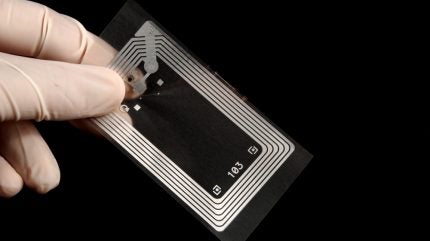
Avery Dennison, in collaboration with the University of Memphis, has recently launched an exhibit showcasing how RFID (Radio Frequency Identification) technology is transforming packaging and logistics.
The exhibit highlights innovative uses of RFID in streamlining parcel handling, from shipment through to the final delivery stage, with an emphasis on improving operational efficiency and sustainability.
Enhancing parcel tacking with RFID
The use of RFID in packaging is aimed at automating processes like parcel sortation and shipment tracking. This allows for increased accuracy and visibility throughout the supply chain, which can improve productivity and reduce errors.
RFID solutions, such as those demonstrated in the exhibit, integrate into robotic and conveyance systems to ensure packages are correctly tracked, scanned, and sorted automatically.
This leads to benefits like a 99% accuracy rate in load handling and a 20% boost in productivity, significantly improving the performance of supply chain operations.
A focus on sustainability
The partnership between Avery Dennison and the University of Memphis also addresses environmental concerns. By optimising route planning and reducing manual labour through RFID technology, packaging processes become more energy efficient.
This, in turn, helps reduce the carbon footprint of logistics operations.
The exhibit demonstrates how RFID can be used to create a more sustainable future for packaging, aligning with broader industry goals of minimising environmental impact while improving operational efficiency.
A hub for industry and academic innovation
The RFID exhibit serves not only as a demonstration of technology but also as an educational platform. It allows students and industry professionals to explore real-world applications of RFID in packaging, promoting further research and development in automatic identification technologies.
Avery Dennison’s partnership with the University of Memphis is expected to drive innovation in packaging and supply chain management, encouraging collaboration between academia and the packaging industry to find sustainable, cost-effective solutions.
The exhibit will remain open for six months, during which industry stakeholders will have the opportunity to attend events and explore new applications of RFID in packaging.







